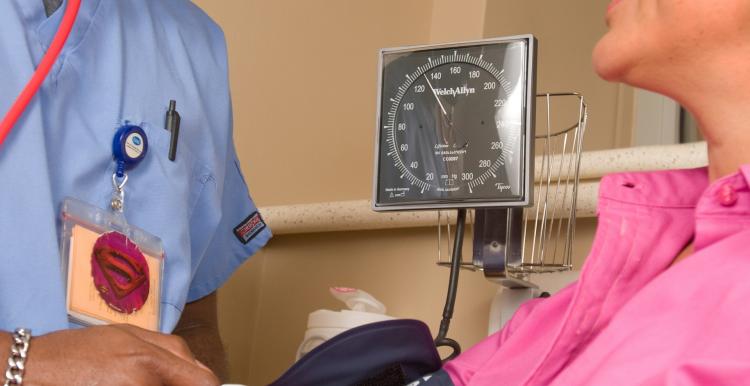High blood pressure: what you need to know

Hypertension (high blood pressure) is an extremely common problem and thousands of people in Milton Keynes alone have high blood pressure which has not been detected. This is because high blood pressure rarely has any symptoms.
It is therefore really important that you know how to check your blood pressure correctly, and you know when to seek medical attention if it is high.
High blood pressure is the biggest contributor to cardiovascular disease (predominantly heart attacks, strokes and dementia) which are the biggest causes of death in our country.
Things to bear in mind:
- It is very common for your blood pressure to be elevated when you go and see your GP or have other medical appointments.
- It can go up in the short term in stressful environments, or if you are in pain or have other underlying medical problems.
- Certain medications can also cause your blood pressure to go up. This is why it is important that if your blood pressure is elevated you seek help from your GP.
Checking your blood pressure
In order to check your blood pressure correctly, Dr Andrew Potter recommends purchasing a blood pressure machine.
“The British heart foundation has a list of validated machines which are fairly cheap to buy. Many GP practices will offer to loan you a blood pressure machine for a few weeks for you to check some readings at home.”
8 essential tips for checking your blood pressure at home:
- It is vital you are in a relaxed environment and have been resting for at least half an hour.
- Do not have any caffeine or nicotine (such as in cigarettes or vapes) for half an hour before you check your blood pressure.
- Make sure are relaxed.
- Go to the loo beforehand! If your bladder is full, this can put your blood pressure up and affect the reading.
- You should be seated comfortably with your back supported, your legs uncrossed and outstretched in front of you, and your arm rested on a level surface.
- Place the cuff on either arm and press the button to activate the machine. We would then recommend pressing the button again to record a second reading and writing down the lowest of the two measurements.
- It is recommended this is done twice a day (usually morning and evening) depending on your daily commitments for at least 7 days, to give 14 readings so an average can be taken.
- Your average blood pressure at home should be less than a 135/85. New evidence suggests blood pressure above a 120/80 is elevated and should be reviewed.
Lifestyle changes can help
- There are a lot of lifestyle changes that can help lower your blood pressure.
- It is important to keep your weight down and do regular exercise. This can help your blood pressure dramatically.
- A low salt diet as well as a high potassium diet (such as a diet that is rich in bananas and tomatoes) can also really help your blood pressure.
- Small amounts of alcohol are okay but when consumption of alcohol has become a habit rather than a treat this is likely to begin to affect your health.
- If you are worried about your blood pressure, we would strongly recommend measuring it at home. If your readings are above a 135/85 on average, please seek help from your GP.


